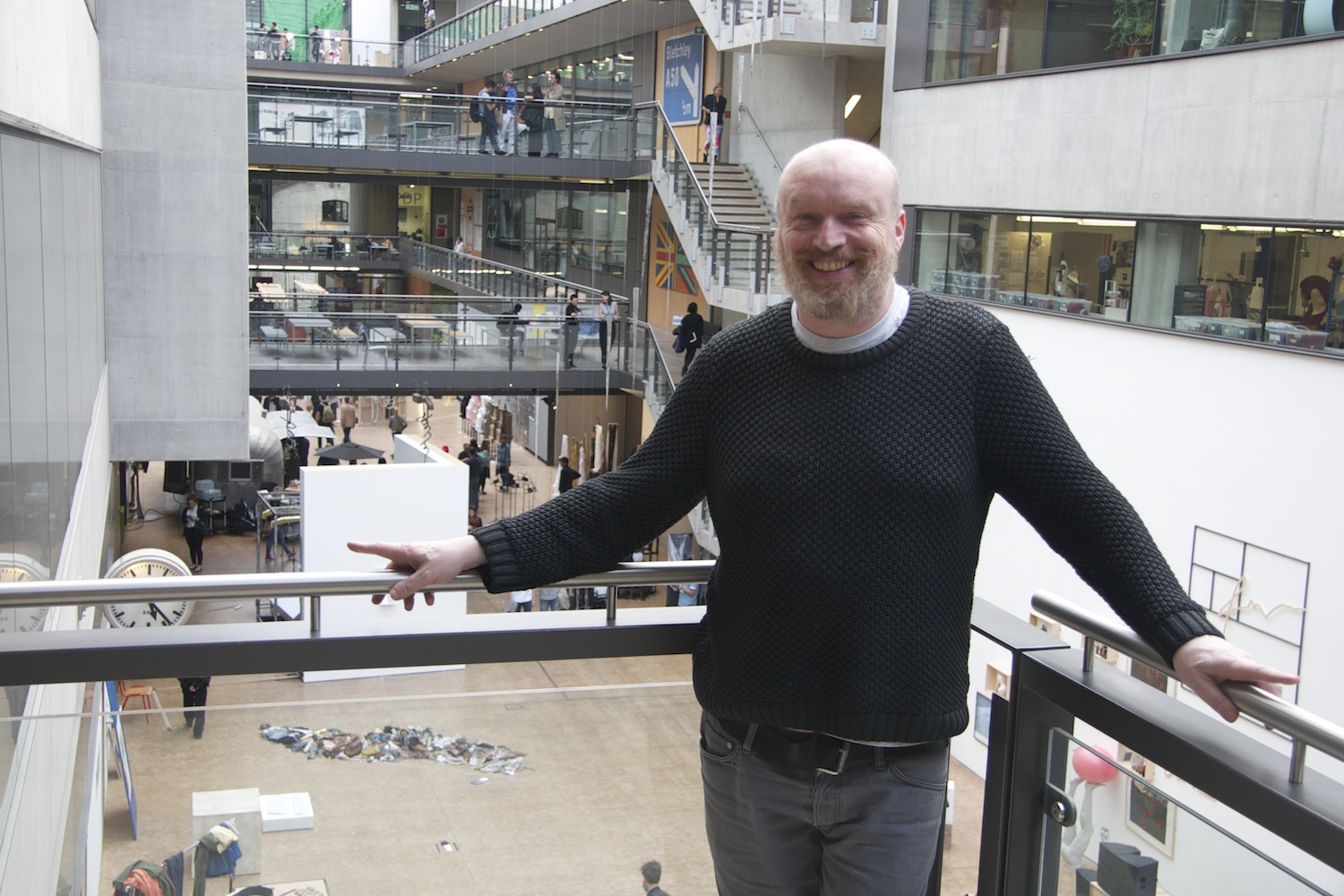Mark Ravenhill, the internationally acclaimed playwright whose plays have been performed at the National Theatre and the Royal Shakespeare Company, joined us last week to talk about his new play. Written exclusively for Drama Centre London, ‘when the terror has ended the victims will dance’ will be performed by final year students for their summer show between 30 June until 3 July.
Tell us about ‘when the terror has ended the victims will dance’
Ravenhill: Towards the end of the French Revolution there was a period that they called The Terror. It saw the height of the guillotine and there is evidence that groups of young aristocrats gathered together and held underground secret dances called bals des victimes, dances of the victims.
You would have to have a death certificate to gain entry to these balls and people would bring items of dead peoples’ clothes, paint their faces white and wear red ribbons around their neck to represent where the guillotine would have fallen. In a way they were an early manifestation of a youth culture. They created new fashions out of old clothes that became influential in Europe. There are also strong parallels with rave culture, the dances were always in secret and they could be raided at any time. They are a really amazing display of youth culture movement.
It’s a fascinating subject but it’s particularly good for a group of students, they can play people their own ages and sympathise with their characters. Nobody has really written about the bals des victimes before, there are a few academic articles and it hasn’t really been shown on stage or in film to my knowledge.
How did you go about researching the subject?
Ravenhill: Jane Gibson, one of the directors, found out about the bals des victimes and she came to me about it a couple of years ago. I think you need enough research to feel secure about the subject you are focusing on, but to also use your imagination as well. Once you research a bit and have a secure foundation, your imagination starts to fill the rest in. Quite often it is weird, once you are on the right track your imagination leads you into areas that are quite close to the truth.
Jonathan Martin has previously said that Drama Centre London follows Woody Allen when he says that the only themes of interest are sex, love and death. Is this something you had in mind?
Ravenhill: Certainly, the Revolution was such a tense time and things were moving so fast, the whole society was living right on the edge. I think in that situation sex, love and death do come right to the fore, you’ve got a lot of human life covered there.
You’ve written plays for drama schools previously. Does working this way provide possibilities that you don’t get elsewhere?
Ravenhill: Yes, one of the things you don’t get normally is cast numbers. One of the first plays I wrote that had a really big cast was Mother Clap’s Molly House and I did that with students from Lamda. It is a different skill and I wanted to learn more about it. That play got picked up by the National Theatre! When I work with the RSC and the National now I feel more confident. In lots of new plays you only get the experience of writing for maximum six people but you can learn this skill working at drama schools, it is a good way of learning and experimenting with big subjects and big casts.
What have been the main challenges in creating this material?
Ravenhill: It is such a big area of history so you really do have to read the wider material before you can home in on your story. But also, you have to live with the fact that you can’t become the world expert on the French Revolution, I think there is always that thing when you have a big subject, you beat yourself up and think that you need to have a PhD before you can write about it, but after a couple of years of reading, you just have to think that it is enough.
The play focuses on the aristocracy as victims, which is an unusual perspective on the French Revolution. How have you approached this a writer with a strong political conscience?
Ravenhill: As a writer you can’t help but feel empathy for these young members of the aristocracy, but they are a bit like the Bullingdon Club. I think theatre is good like that, it allows you to feel really torn. I both feel their pain but also think that they are quite repulsive at the same time. It is much more alive as theatre if it feels less black and white, good character, bad character. I think it is one of the things that attracted me to the subject.
Finnaly, how do you feel about the future of theatre?
Ravenhill: It will be interesting to see how much further cuts to the arts goes. I mean the initial reaction to the cuts has oddly released a lot of vigour and defiance to the cuts, but I think that is only sustainable for so long. It feels very alive at the moment, people are more politicized and they are becoming creative as a reaction to these politic changes, but how long can you literally feed yourself and pay your bills, perhaps it is unsustainable.
More information:


